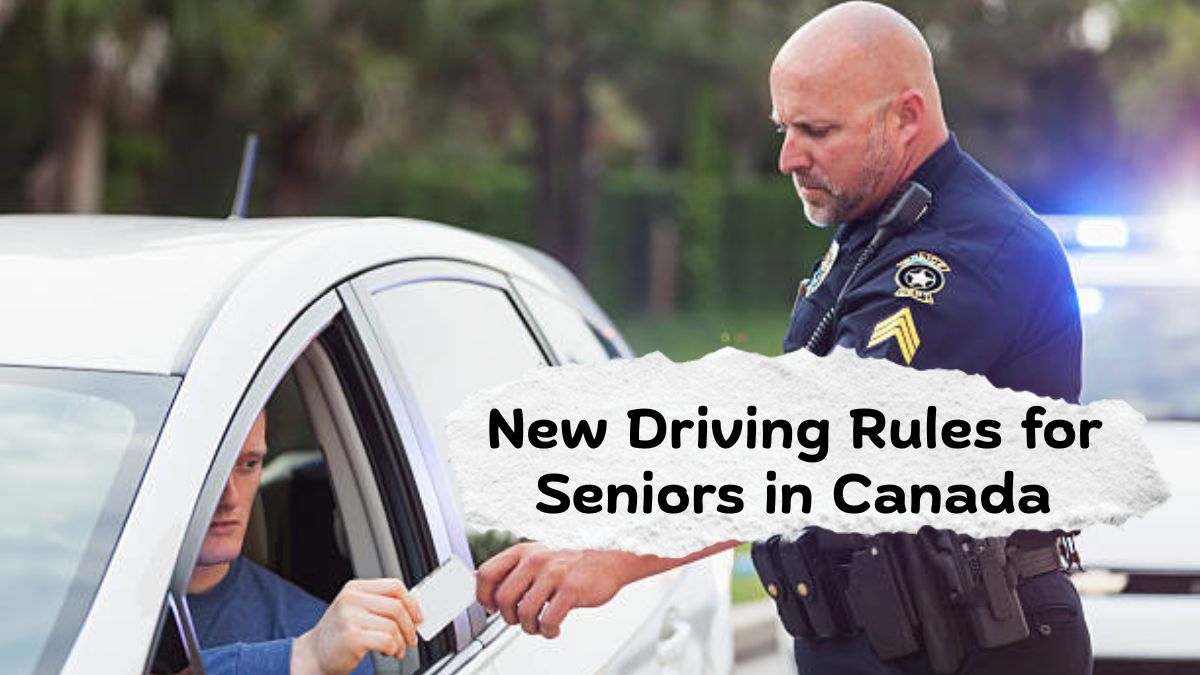Canada is preparing for a significant shift in how older drivers are tested and licensed. Beginning August 2025, seniors aged 70 and above will see new rules rolled out across multiple provinces—not nationwide, as some headlines suggest. These changes are being introduced by provincial and territorial governments, not by a single federal mandate.
Who Regulates Driver Licensing in Canada?
In Canada, driver licensing is handled at the provincial and territorial level, not by the federal government. This means each province or territory decides its own rules and testing methods. However, for the first time, governments across regions are now coordinating their efforts to establish shared guidelines—particularly for senior drivers hitting the age of 70 and beyond.
The result won’t be a single national law, but rather consistent principles applied across provinces, including medical testing, cognitive assessments, and conditional driving privileges for seniors.
Key Changes Coming in August 2025
Starting in August 2025, seniors in many provinces will face new requirements when renewing or retaining their driver’s licenses. These changes aim to improve road safety while supporting independence for aging drivers.
| Topic | Details |
|---|---|
| Effective Date | August 2025 |
| Applies To | Drivers aged 70 and above (may vary by province) |
| Key Requirements | Medical evaluations, vision tests, cognitive checks, optional road tests |
| Conditional Licensing | Limited licenses (e.g., no night driving) instead of full license loss |
| Cost Concerns | Exams may cost seniors out of pocket; no nationwide coverage announced yet |
| Transport Alternatives | Seniors will have access to support services like shuttles and rideshares |
What’s Changing for Senior Drivers?
Several provinces will implement enhanced driving rules for seniors beginning in August 2025. These include:
- Mandatory medical assessments at age 70
- Vision and cognitive testing as part of license renewal
- Optional or mandatory driving refresher courses
- Restricted licenses (e.g., no night or highway driving for certain individuals)
Each province will apply the framework differently. For example:
- Ontario may require more rigorous testing at age 80
- British Columbia could start cognitive screenings as early as 70
These changes aim to balance road safety with seniors’ mobility needs, adapting rules to each region’s population and transport infrastructure.
What Will the Medical Exams Include?
Seniors won’t be stripped of their licenses at 70. Instead, they will undergo periodic medical reviews to ensure they can drive safely.
Tests will typically include:
- Vision tests (clarity, field of view)
- Cognitive assessments (memory, attention, decision-making)
- Physical coordination and reflex checks
- Review of medications and chronic health conditions
Where red flags are raised, a road test or specialist evaluation may follow. Often, instead of revoking licenses, provinces may grant conditional licenses tailored to the senior’s abilities (e.g., day-time only driving).
Affordability and Fairness
1. Affordability
Medical and vision tests could cost seniors several hundred dollars. While some provinces may offer subsidies, others may not, and no federal funding support has been announced.
For many seniors living on fixed incomes, this could be a major barrier to retaining their license—even if they are medically fit to drive.
2. Fairness and Human Rights
There are concerns from advocacy groups that these new rules could violate the Canadian Human Rights Act, particularly around age discrimination and disabilities. So far, no legal challenges have been filed.
Government officials maintain that these rules are based on driver ability, not age alone, and that assessments are designed to identify risk factors—not punish age.
Will Losing a License Leave Seniors Stranded?
In rural or suburban parts of Canada, losing driving privileges can severely impact a senior’s mobility and social life. To prevent isolation, many provinces are planning to expand alternative transportation services, including:
- Seniors-only shuttle programs
- Accessible public transit and paratransit
- Subsidized taxi and rideshare vouchers
- Transportation assistance for medical and essential appointments
These services aim to make sure that even if a senior cannot drive, they are not cut off from healthcare, groceries, or community engagement.
Tips for Seniors to Stay Road-Ready (How Seniors Can Prepare Now)
For seniors nearing 70, preparation is key. Here are some practical steps to maintain your driving freedom:
- Get vision and hearing checked every year
- Join defensive driving programs tailored for older adults
- Stay physically active to maintain motor skills and coordination
- Review medications with your doctor for side effects that impact driving
- Keep track of provincial rule updates, as guidelines may evolve annually
Being proactive could make the difference between keeping your license and facing unexpected restrictions.
FAQs
Q1: Is this a national rule?
A: No. These rules are being developed and enforced by provinces individually. However, there’s a trend toward coordinated policy.
Q2: Will all seniors lose their license at age 70?
A: No. Age 70 marks the start of medical assessments, not automatic license revocation. Most seniors will retain driving rights, possibly with some restrictions.
Q3: Do all provinces follow the same process?
A: No. Each province sets its own rules, timelines, and testing protocols. Some may begin at 70; others might wait until 75 or 80.
Q4: What if I can’t afford the medical exams?
A: Costs may vary by province. Some may offer subsidies, but not all. Advocacy groups are urging governments to make these tests free for seniors.
Q5: Can I appeal a restricted or suspended license decision?
A: Yes. Most provinces allow drivers to appeal or request re-evaluation if they believe a decision was made in error.








